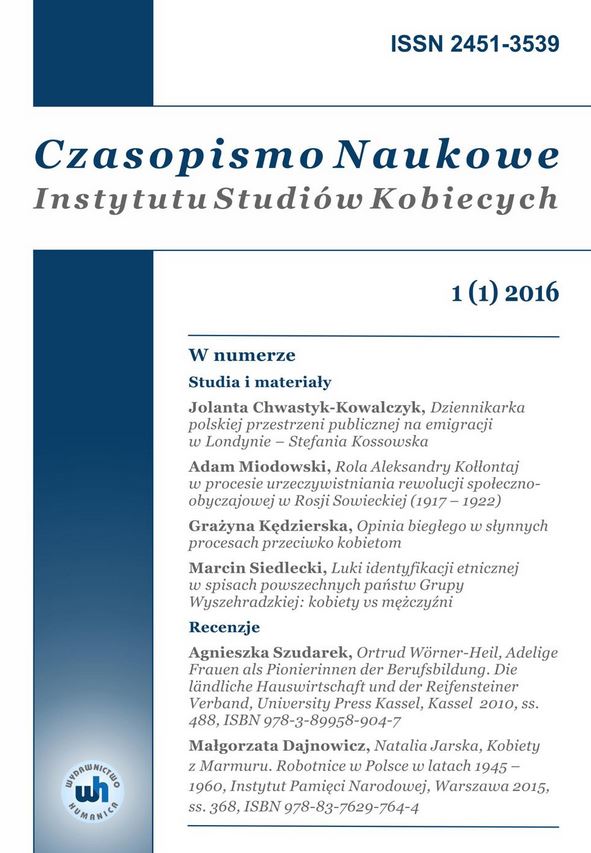Radykalny feminizm Aleksandry Kołłontaj i próby urzeczywistnienia jego pryncypiów w przestrzeni społeczno-obyczajowej Rosji Sowieckiej (1917–1922)
Radical feminism of Aleksandra Kollontaj and implementation approaches of its principles within social and custom area of Soviet Russia (1917-1922)
Author(s): Adam MiodowskiSubject(s): Social Sciences, Gender Studies, Sociology
Published by: Wydawnictwo HUMANICA Instytut Studiów Kobiecych
Keywords: ALEXANDRA KOLLONTAJ; MARXIST FEMINISM; REVOLUTION OF MANNERS; SOVIET RUSSIA
Summary/Abstract: Aleksandra Kollontai was born on 31st of March, 1872 in St. Petersburg. In 1893, at the age of 21, she married Michał Kollontai. Thanks to her husband she came to know about the revolutionary idea of Karl Marx, Friedrich Engels and George Plekhanov. After separating with her husband, A. Kollontai left for Switzerland in 1898, where she studied economics. During her stay in Western Europe, she established number of contacts with revolutionary environment. At the beginning 20th century, she returned to Russia already as a leftist activist, in order to take over position of Secretary of St. Petersburg Committee of the Bolshevik Party. Since then, in her dealings, she characterized situation of women in her country with special sensitivity. This was the starting point for her gradual approach to the radical trend of Marxist feminism. After Bolshevik revolution that took place in 1917, she was appointed to the position of Folk Commissioner for social welfare, becoming the first woman in the world acting as a minister. During that time, she organized numerous conferences and meetings of Communists from all over Europe. At the end of 1918, along with Inessa Armand, A. Kollontai created world's first office for women affairs.
Journal: Czasopismo Naukowe Instytutu Studiów Kobiecych
- Issue Year: 2016
- Issue No: 1
- Page Range: 24-44
- Page Count: 21
- Language: Polish

